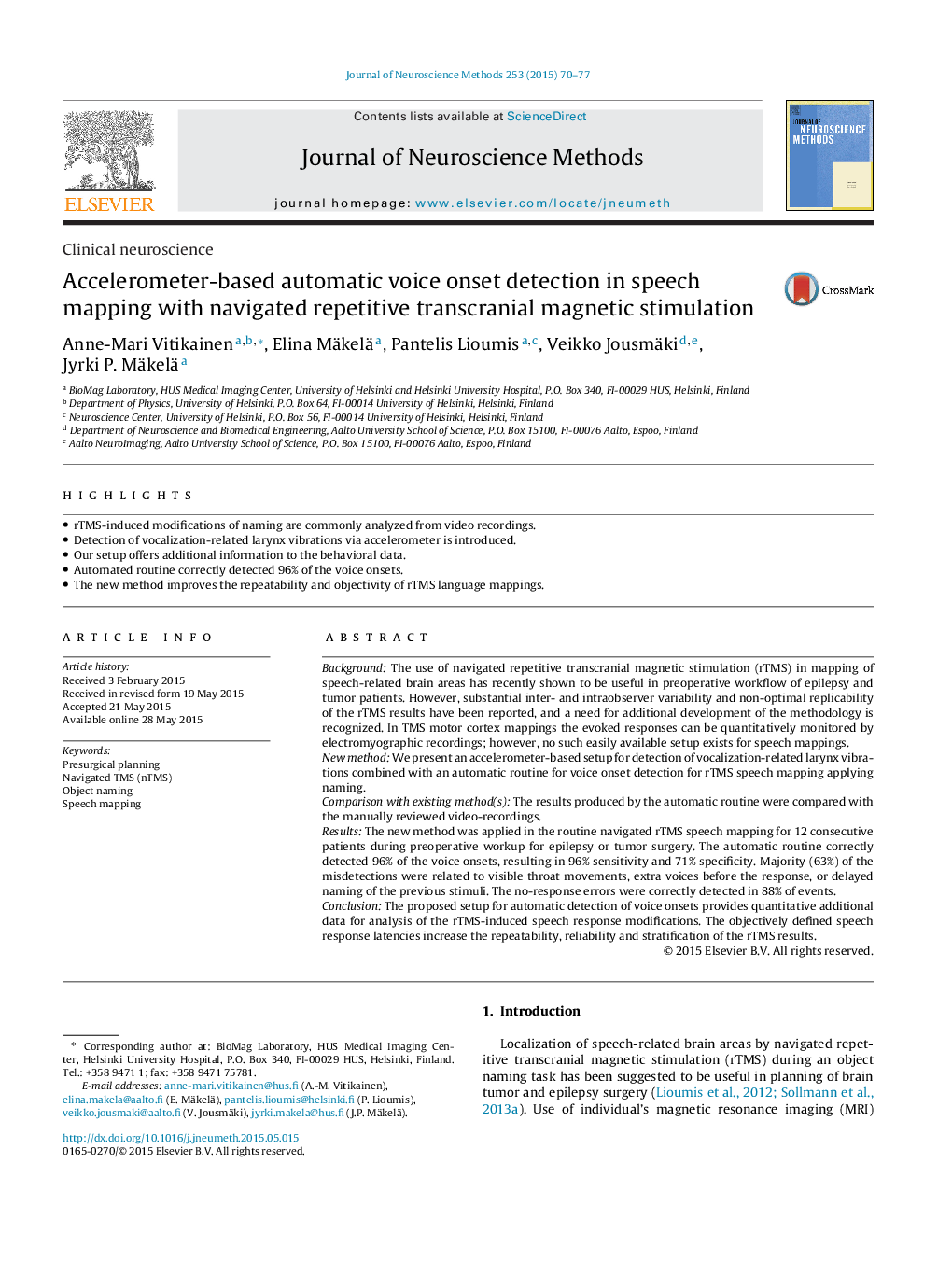| Article ID | Journal | Published Year | Pages | File Type |
|---|---|---|---|---|
| 6268032 | Journal of Neuroscience Methods | 2015 | 8 Pages |
â¢rTMS-induced modifications of naming are commonly analyzed from video recordings.â¢Detection of vocalization-related larynx vibrations via accelerometer is introduced.â¢Our setup offers additional information to the behavioral data.â¢Automated routine correctly detected 96% of the voice onsets.â¢The new method improves the repeatability and objectivity of rTMS language mappings.
BackgroundThe use of navigated repetitive transcranial magnetic stimulation (rTMS) in mapping of speech-related brain areas has recently shown to be useful in preoperative workflow of epilepsy and tumor patients. However, substantial inter- and intraobserver variability and non-optimal replicability of the rTMS results have been reported, and a need for additional development of the methodology is recognized. In TMS motor cortex mappings the evoked responses can be quantitatively monitored by electromyographic recordings; however, no such easily available setup exists for speech mappings.New methodWe present an accelerometer-based setup for detection of vocalization-related larynx vibrations combined with an automatic routine for voice onset detection for rTMS speech mapping applying naming.Comparison with existing method(s)The results produced by the automatic routine were compared with the manually reviewed video-recordings.ResultsThe new method was applied in the routine navigated rTMS speech mapping for 12 consecutive patients during preoperative workup for epilepsy or tumor surgery. The automatic routine correctly detected 96% of the voice onsets, resulting in 96% sensitivity and 71% specificity. Majority (63%) of the misdetections were related to visible throat movements, extra voices before the response, or delayed naming of the previous stimuli. The no-response errors were correctly detected in 88% of events.ConclusionThe proposed setup for automatic detection of voice onsets provides quantitative additional data for analysis of the rTMS-induced speech response modifications. The objectively defined speech response latencies increase the repeatability, reliability and stratification of the rTMS results.
